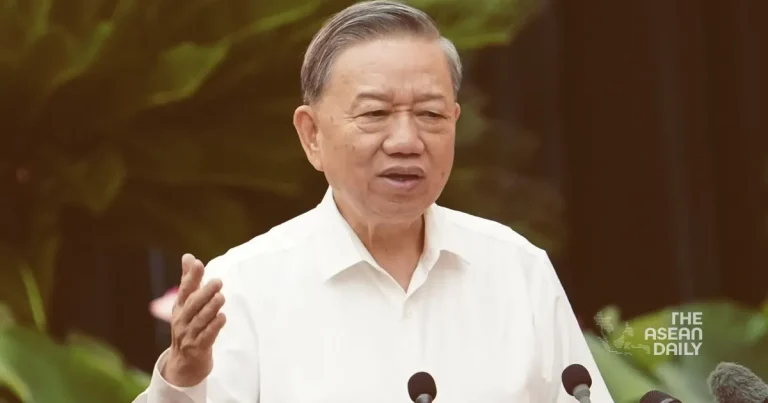19-8-2024 (BEIJING) Vietnam’s newly appointed leader, To Lam, has selected China as the destination for his first overseas visit since assuming office. This choice underscores the enduring importance of Sino-Vietnamese relations, even as Vietnam continues to diversify its international partnerships.
Lam, who recently succeeded the late Nguyen Phu Trong as General Secretary of Vietnam’s Communist Party, arrived in Guangzhou on Sunday morning aboard a Vietnam Airlines flight. The three-day visit, which will culminate in a meeting with Chinese President Xi Jinping in Beijing, comes just a fortnight after Lam’s confirmation as Vietnam’s top political figure.
This inaugural foreign trip is widely interpreted as a signal of Vietnam’s commitment to maintaining strong ties with its northern neighbour. Yu Xiangdong, director of the Institute for Vietnam Studies at China’s Zhengzhou University, commented in the state-run Global Times that Lam’s choice “is a sign that Vietnam attaches great importance to its relations with China.”
However, analysts are quick to point out that this move does not indicate a shift away from Vietnam’s carefully balanced foreign policy. Over the past year, Vietnam has upgraded its diplomatic relations with both the United States and Japan to the status of ‘comprehensive strategic partnership’, its highest level of diplomatic engagement. This designation is shared only with China and India in Vietnam’s diplomatic hierarchy.
The visit comes against a backdrop of complex regional dynamics. While Vietnam has been cultivating closer ties with the US and its allies, it has simultaneously been navigating its relationship with China, with whom it shares a communist ideology but also territorial disputes in the South China Sea.
During his visit, Lam is expected to pay homage to the shared revolutionary history between the two nations. His itinerary in Guangzhou includes visits to sites associated with Ho Chi Minh, the founder of communist Vietnam, who spent time in southern China during the 1920s and 1930s as part of the Soviet Union’s global communist expansion efforts.
Despite historical tensions, including a brief Chinese invasion of northern Vietnam in 1979 and ongoing maritime disputes, economic ties between the two nations remain robust. China is Vietnam’s largest trading partner, and Chinese investment plays a crucial role in Vietnam’s manufacturing sector.
The visit is also likely to touch upon recent developments in regional cooperation. During Xi’s visit to Vietnam in December, the two countries agreed to build “a shared future that carries strategic significance,” a phrase that some observers viewed as a concession from Vietnam.




